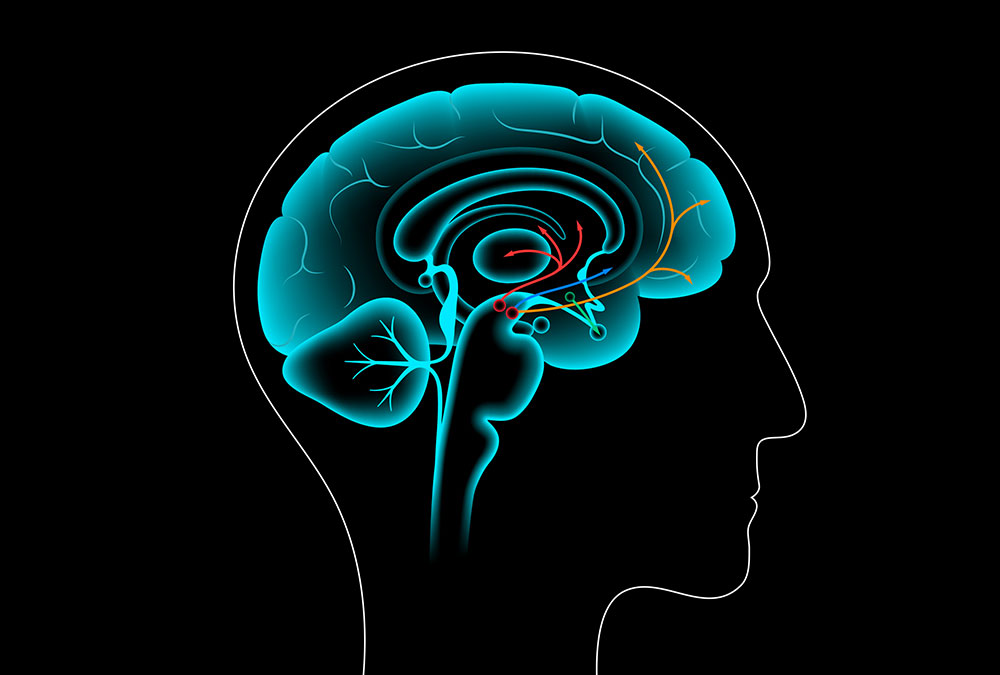When most people think of addiction, drugs like heroin, cocaine or fentanyl usually come to mind. These are powerful addictive substances that can have a dramatic negative impact on the lives of both the person with the addiction and their loved ones. Perhaps even more noteworthy is how these drugs work both physically and psychologically to keep people stuck in the cycle of addiction.
However, one of the most powerful substances on the market is legal for those over 21. Yes, alcohol is also a drug, and it can be just as addictive as any other substance. In fact, according to the National Institute on Alcohol Abuse and Alcoholism, alcohol is among the most used addictive substances in the United States. [1]U.S. Department of Health and Human Services. (2021). Alcohol. National Institutes of Health. Retrieved May 16, 2022, from https://nida.nih.gov/drug-topics/alcohol Just as with other drugs, misusing alcohol can lead to severe problems, including financial difficulties, relationship problems, health problems, and job loss.
Alcohol use disorder is also highly misunderstood. Typically, it is also called alcohol dependence, alcoholism, alcohol addiction, and many other names that fail to represent the truly disordered nature of the person’s relationship with the substance.
These terms also don’t communicate the full extent of the underlying conditions experienced by those suffering from substance use disorders, including alcohol use disorder. With a strong foundation of knowledge regarding alcohol use disorder and its effect, you can be better equipped to understand and deal with your own alcohol dependence or that of a loved one.
Understanding Alcohol
Alcohol is a central nervous system depressant that works to slow down the body’s systems and provide intoxicating effects. It is made from fermented fruits, grains, or vegetables. When alcohol is consumed, it is broken down by the liver, absorbed into the bloodstream, and circulated throughout the body. When you consume alcohol at a faster rate than your body can break it down, you are intoxicated.

Alcohol affects everyone differently depending on various factors, including age, weight, gender, and how fast the body metabolizes alcohol. Generally, alcohol will affect people within about 30 minutes of consumption. When those effects take place, they slow brain response, leading to slurred speech, sluggishness, clumsiness, reduced vision, impaired reaction time, and reduced balance. Alcohol also initiates the release of dopamine, the brain’s “feel good” chemical.
Is Alcohol a Drug or Chemical? Is Alcohol a Toxic Drug?
Most people think of drugs as illegal substances, but alcohol is classified as a drug because it has similar effects on the body as other drugs. Alcohol is a chemical that, like other drugs, can change the way the brain and body function, eventually causing users to depend on its effects to feel normal. In this way, alcohol is considered a toxic drug for those who misuse it.
Why Is Alcohol Legal?
The effects of alcohol on the body and mind depend on the amount consumed and the regularity of use. For many people, alcohol consumption is not always a bad thing. In small amounts consumed on occasion, alcohol can provide people with pleasurable effects and feelings of relaxation. It can also help to lower inhibitions and make people feel more confident. However, as the amount of alcohol consumed and the frequency of consumption increases, so do the adverse effects.
Large amounts of alcohol can lead to slurred speech, impaired coordination, vomiting, and blackouts. Drinking too much alcohol can also lead to serious health problems, like liver disease, heart disease, and cancer. [2]Centers for Disease Control and Prevention. (2022). Drinking too much alcohol can harm your health: Learn the facts. Centers for Disease Control and Prevention. Retrieved May 16, 2022, from … Continue reading As the brain and body become accustomed to the relaxation, sedation, and other effects of alcohol—and grow dependent on the presence of alcohol to feel normal—there is a finer and finer line between moderate, social drinking and alcohol use disorder.
How Is Alcohol Use Disorder Defined?
Alcohol use disorder is a chronic, recurring brain disease consisting of compulsive alcohol seeking and use, despite the harmful consequences of this use. People with alcohol use disorder will continue to drink alcohol even when it causes problems in their lives. They may know that their drinking is causing problems but feel like they can’t stop, and most encounter trouble ceasing alcohol use without serious side effects.
What Causes Alcohol Use Disorder?
There is no single cause of alcohol use disorder. Instead, it is thought to be caused by genetic and environmental factors, including the following.
Family History
People who have a family history of alcoholism or other substance abuse disorders are more likely to develop alcohol use disorder. This may be due to both genetic and environmental factors. For example, growing up in a household where alcohol is easily accessible may lead to a new generation mimicking the behavior of addicted parents or other family members. [3]U.S. Department of Health and Human Services. (n.d.). Understanding alcohol use disorder. National Institute on Alcohol Abuse and Alcoholism. Retrieved May 16, 2022, from … Continue reading
Mental Health Disorders
People with certain mental health disorders, like anxiety or depression, may turn to alcohol to self-medicate. This can lead to alcohol use disorder if drinking becomes a regular coping mechanism. The reward of temporarily eliminating negative emotions and experiencing a dopamine boost can reinforce the behavior and make it difficult to stop.
Environmental Factors
Environmental factors like peer pressure or stress can lead to alcohol use disorder. For example, people who are exposed to a great deal of alcohol use may be more likely to develop alcohol use disorder. As mentioned, people who grew up in a household where adults drank heavily may be more likely to develop the disorder themselves. Finally, some people may begin drinking to combat stress in their lives, then discover that it is difficult to stop drinking and return to the daily stressors.
Treatment for Alcohol Use Disorder
Treating alcohol use disorder can be a long and challenging process. It often requires multiple different approaches to be successful. The first step in treatment is often some form of detoxification, which is getting rid of all the alcohol in your system. This can be a dangerous process if done without medical supervision, so it’s important to detox under a doctor’s care or at an inpatient facility.
After detox, the next step is usually therapy. Many different types of therapy can be helpful for alcohol use disorder, including counseling, cognitive behavioral therapy, aversion therapy, family therapy, and psychotherapy.
Counseling

Counseling is a type of therapy that involves talking to a therapist about your thoughts, feelings, and experiences. It can help treat alcohol use disorder by teaching you how to cope with triggers, manage your emotions, and make healthier choices.
Cognitive Behavioral Therapy
Cognitive behavioral therapy is a type of therapy that focuses on changing the way you think about and respond to triggers. It can help treat alcohol use disorder by teaching you how to identify and avoid triggers that lead to drinking, cope with cravings, and make healthy choices. [4]Marques, A. C. P., & Formigoni, M. L. O. (2001). Comparison of individual and group cognitive‐behavioral therapy for alcohol and/or drug‐dependent patients. Addiction, 96(6), 835-846. … Continue reading
Aversion Therapy
Aversion therapy is a type of therapy that uses techniques like an electric shock or nausea-inducing drugs to make you associate alcohol with negative experiences. It can help treat alcohol use disorder by allowing you to associate alcohol with the negative emotions that you experienced during therapy.
Family Therapy
Family therapy is a type of therapy that involves talking to your family about your alcohol use disorder. It can help treat alcohol use disorder by teaching you how to communicate with your family and leverage the power of their support. Also, if your family is struggling with their own issues related to your alcoholism, or has been part of the reason why you’ve struggled with alcoholism in the first place, family therapy can help to address those issues.
Psychotherapy
Psychotherapy is a therapy that focuses on your mental health and addresses co-occurring disorders. It can also help treat alcohol use disorder by helping you understand your thoughts and feelings that will empower you to make healthier choices that do not involve drinking alcohol.
Medications for Alcohol Use Disorder
In addition to therapy, some medications can be used to reduce the desire to drink. These include sedatives, vitamins, and alcoholism medication.
Sedatives
Sedatives are a medication that works by calming the nervous system. They can help treat alcohol use disorder by reducing the anxiety and stress that lead to drinking.
Vitamins
Vitamins are a type of supplement that can be helpful in treating alcohol use disorder by replenishing the nutrients that are often depleted by alcoholism.
Alcoholism Medication
Alcoholism medication is a type of medication that can be helpful in treating alcohol use disorder by reducing the craving for alcohol. Other medications can cause you to become ill if you ingest alcohol, serving as a deterrent. Such medications may include naltrexone (Vivitrol) and disulfiram (Antabuse).
The above-mentioned therapies and medications are remarkably similar to what is used to treat other substance abuse disorders. This is because alcohol use disorder is a real, serious disease that should be treated with the same care as any other addiction.
The Value of Mutual Support Groups

In addition to therapy and medications, there are also mutual support groups that can be helpful in treating alcohol use disorder. These groups provide a space for people to share their experiences and support each other in recovery. They can help treat alcohol use disorder by providing a sense of community and belonging and by helping to normalize the experience of recovering from alcoholism.
Many people join support groups with a desire to quit drinking but feel like they can’t do it on their own.
Common reasons why they feel support groups are necessary are because they:
- Have tried to quit on their own and failed
- Feel like they need more support than what family and friends can provide
- Feel like they need to talk to people who understand what they’re going through
- Want to share their experience to help others recover as well
- Need accountability and structure in their recovery
- Feel like they need more than just therapy to recover
Self-Care Habits That Can Help Alcohol Use Disorder
In addition to therapy, medications, and mutual support groups, there are also self-care habits that can be helpful in treating alcohol use disorder. These include:
Eating a Healthy Diet
Eating a healthy diet can help treat alcohol use disorder by providing your body with the nutrients it needs to heal and recover from the damage that has been done by alcoholism or any other eating disorders that could be fueling and working with your alcoholism. [5]Sinha, R., & O’Malley, S. S. (2000). Alcohol and eating disorders: implications for alcohol treatment and health services research. Alcoholism: Clinical and Experimental Research, 24(8), … Continue reading Popular foods that are often recommended for people in recovery are fruits, vegetables, lean proteins, and whole grains.
Exercising

Exercising can be helpful in treating alcohol use disorder by helping to improve your mood, increase your energy levels, and reduce stress. It is important to find an exercise routine that you enjoy and that you can stick with long-term.
Getting Enough Sleep
Getting enough sleep can help treat alcohol use disorder by reducing fatigue and increasing your overall energy levels. It is important to get at least eight hours of sleep each night.
Meditation/Mindfulness
Meditating or practicing mindfulness in your daily activities can be helpful in treating alcohol use disorder by reducing stress and anxiety and shifting your focus to positive activities. It gives the body and mind an opportunity to relax and focus on the present moment. This can be an essential part of recovery, as it can help to prevent relapse.
All these self-care habits are important while treating alcohol use disorder. However, remember that recovery is a journey and there will be good days and bad days. Be gentle with yourself and do not expect perfection. Just take things one day at a time and always remember that you are worth the effort.
How Do I Know If I Need Help?
If you question whether you need help, it is probably a good idea to seek out professional help.

Here are some common signs that you may need help:
- You have been drinking more than you intended to or for longer than you intended.
- You have been unsuccessful in your attempts to cut down on your drinking.
- You have started to neglect your responsibilities at home, work, or school.
- You have been drinking in dangerous situations, such as while driving or operating machinery.
- You have been experiencing financial, legal, or relationship problems due to your drinking.
- You have been blacking out or forgetting what you did while drinking.
- You have been feeling guilty or ashamed about your drinking.
- You have been experiencing physical health problems due to your drinking.
For help providing more clarity, take our “Am I Addicted to Alcohol” quiz.
References
| ↑1 | U.S. Department of Health and Human Services. (2021). Alcohol. National Institutes of Health. Retrieved May 16, 2022, from https://nida.nih.gov/drug-topics/alcohol |
|---|---|
| ↑2 | Centers for Disease Control and Prevention. (2022). Drinking too much alcohol can harm your health: Learn the facts. Centers for Disease Control and Prevention. Retrieved May 16, 2022, from https://www.cdc.gov/alcohol/fact-sheets/alcohol-use.htm |
| ↑3 | U.S. Department of Health and Human Services. (n.d.). Understanding alcohol use disorder. National Institute on Alcohol Abuse and Alcoholism. Retrieved May 16, 2022, from https://www.niaaa.nih.gov/publications/brochures-and-fact-sheets/understanding-alcohol-use-disorder |
| ↑4 | Marques, A. C. P., & Formigoni, M. L. O. (2001). Comparison of individual and group cognitive‐behavioral therapy for alcohol and/or drug‐dependent patients. Addiction, 96(6), 835-846. https://doi.org/10.1046/j.1360-0443.2001.9668355.x |
| ↑5 | Sinha, R., & O’Malley, S. S. (2000). Alcohol and eating disorders: implications for alcohol treatment and health services research. Alcoholism: Clinical and Experimental Research, 24(8), 1312-1319. https://doi.org/10.1111/j.1530-0277.2000.tb02097.x |




